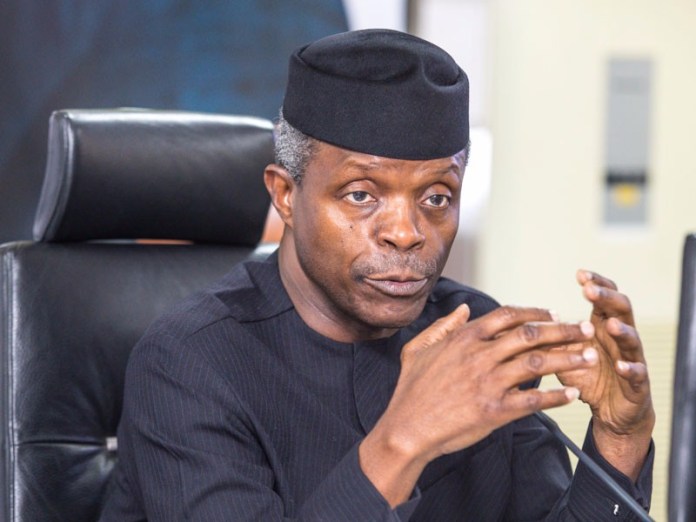- Firm Begins LPG Cylinder Production, as Osinbajo Inaugurates Plant
The Vice-President, Prof Yemi Osinbajo, has inaugurated a plant that is capable of producing five million cylinders for Liquefied Petroleum Gas, also known as cooking gas, annually.
The plant was built by Techno Oil Limited in Lagos and unveiled on Friday, with the company saying it could meet the country’s requirements and export to other West African countries.
Osinbajo described the inauguration as a landmark moment for Nigeria’s mid-downstream gas sub-sector, and a reminder that the country must regard its abundant domestic gas resource as an important component of economic growth and national prosperity.
He said, “Techno Oil’s investment auspiciously converges with our administration’s efforts to speedily diversify our economy, especially through domestic and indigenous solutions.
“When we came into office in 2015, one of the issues we identified was the abysmally low domestic utilisation of Liquefied Petroleum Gas in Nigeria – a nine per cent penetration rate nationwide, despite Nigeria’s domestic LPG production of three million metric tonnes per annum.”
He noted that for too long, the nation’s dominant fuel options had remained petrol, diesel and firewood, which “present significant health, environmental, economic and social challenges.”
According to the Vice-President, natural gas and its derivatives such as LPG are cleaner and more friendly to the environment, and also present substantial economic and investment opportunities across the Nigerian economy.
He said the Federal Government’s goal “is to achieve five million metric tonnes of domestic, commercial and industrial LPG utilisation in 10 years.”
“Specifically, for household cooking, we are targeting a 40 per cent adoption rate (i.e. 13.8m households) in five years, and 73 per cent adoption in 10 years (33.3m households). We believe that the sub-sector can create up to two million new direct and indirect jobs in Nigeria,” he added.
While commending the visionaries and management of Techno Oil for making “this substantial investment in the development of the gas sector,” Osinbajo said the Federal Government would continue to work with them to ensure their success.
The Executive-Vice-Chairman, Techno Oil, Mrs Nkechi Obi, said the ultra-modern plant was built to bridge the infrastructural gap – cylinder inadequacy and high cost of its acquisition – hindering LPG adoption in the country.
She stated that the saturation of the market with imported old, expired and substandard cylinders had raised concerns among stakeholders.
She said the company would deploy cylinders of international quality into the Nigerian market, produced in Nigeria for Nigerians.
Obi said, “We are aware of several cylinder plants in the past, whose operations have collapsed due to continued importation of old, expired and substandard cylinders into our country.”

 Forex3 weeks ago
Forex3 weeks ago
 Naira2 weeks ago
Naira2 weeks ago
 Billionaire Watch2 weeks ago
Billionaire Watch2 weeks ago



 Naira3 weeks ago
Naira3 weeks ago






 Naira2 weeks ago
Naira2 weeks ago




 Naira1 week ago
Naira1 week ago




 Naira4 weeks ago
Naira4 weeks ago






 Naira1 week ago
Naira1 week ago
























